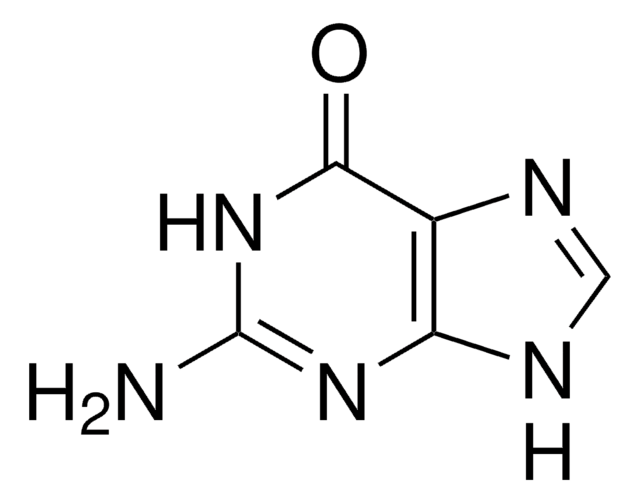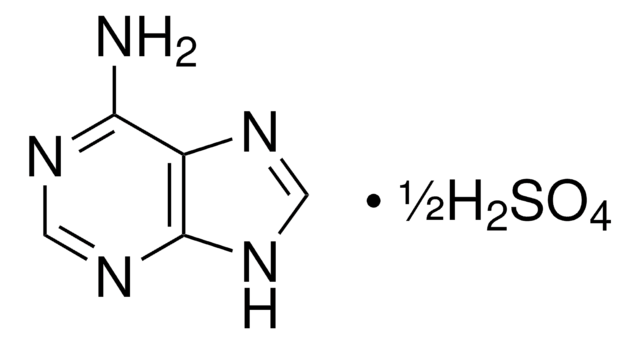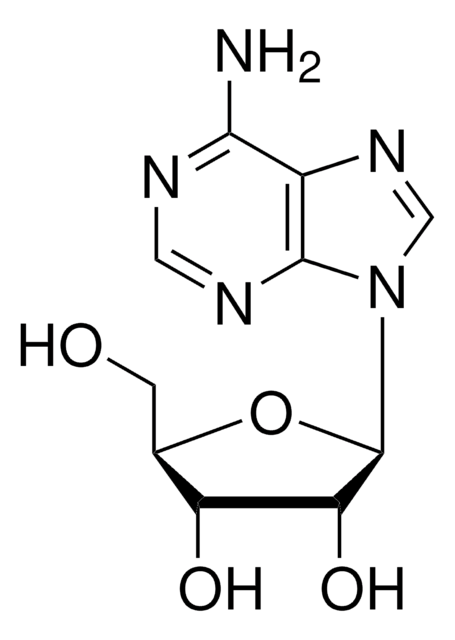Wichtige Dokumente
A0230000
Adenin
European Pharmacopoeia (EP) Reference Standard
Synonym(e):
6-Amino-purin, Vitamin B4
About This Item
Empfohlene Produkte
Biologische Quelle
synthetic
Qualität
pharmaceutical primary standard
Agentur
EP
API-Familie
adenine
Form
solid
Hersteller/Markenname
EDQM
Methode(n)
gas chromatography (GC): suitable
liquid chromatography (LC): suitable
mp (Schmelzpunkt)
>360 °C (lit.)
Anwendung(en)
pharmaceutical (small molecule)
Format
neat
Lagertemp.
2-8°C
SMILES String
Nc1ncnc2[nH]cnc12
InChI
1S/C5H5N5/c6-4-3-5(9-1-7-3)10-2-8-4/h1-2H,(H3,6,7,8,9,10)
InChIKey
GFFGJBXGBJISGV-UHFFFAOYSA-N
Suchen Sie nach ähnlichen Produkten? Aufrufen Leitfaden zum Produktvergleich
Allgemeine Beschreibung
Anwendung
Verpackung
Sonstige Hinweise
Ähnliches Produkt
Signalwort
Danger
H-Sätze
P-Sätze
Gefahreneinstufungen
Acute Tox. 3 Oral
Lagerklassenschlüssel
6.1D - Non-combustible acute toxic Cat.3 / toxic hazardous materials or hazardous materials causing chronic effects
WGK
WGK 3
Flammpunkt (°F)
Not applicable
Flammpunkt (°C)
Not applicable
Hier finden Sie alle aktuellen Versionen:
Analysenzertifikate (COA)
Leider sind derzeit keine COAs für dieses Produkt online verfügbar.
Wenn Sie Hilfe benötigen, wenden Sie sich bitte an Kundensupport
Besitzen Sie dieses Produkt bereits?
In der Dokumentenbibliothek finden Sie die Dokumentation zu den Produkten, die Sie kürzlich erworben haben.
Kunden haben sich ebenfalls angesehen
Unser Team von Wissenschaftlern verfügt über Erfahrung in allen Forschungsbereichen einschließlich Life Science, Materialwissenschaften, chemischer Synthese, Chromatographie, Analytik und vielen mehr..
Setzen Sie sich mit dem technischen Dienst in Verbindung.






